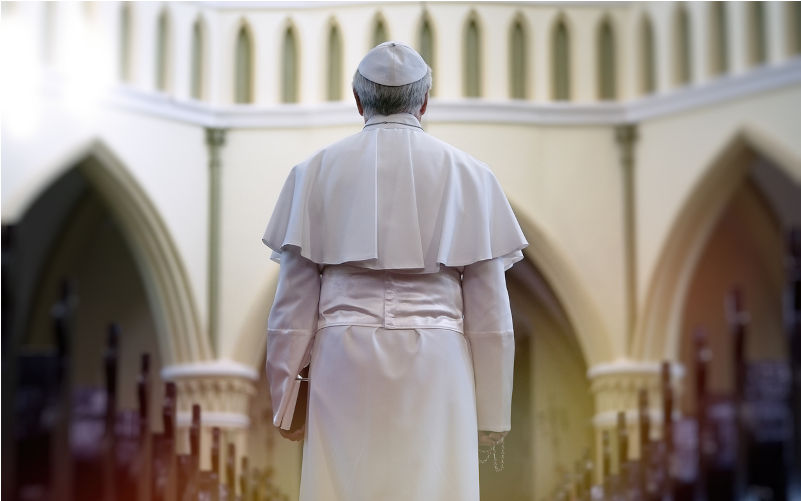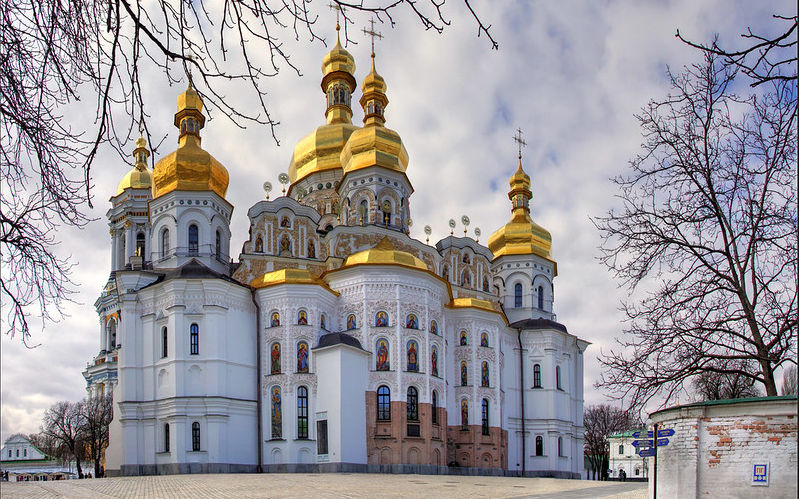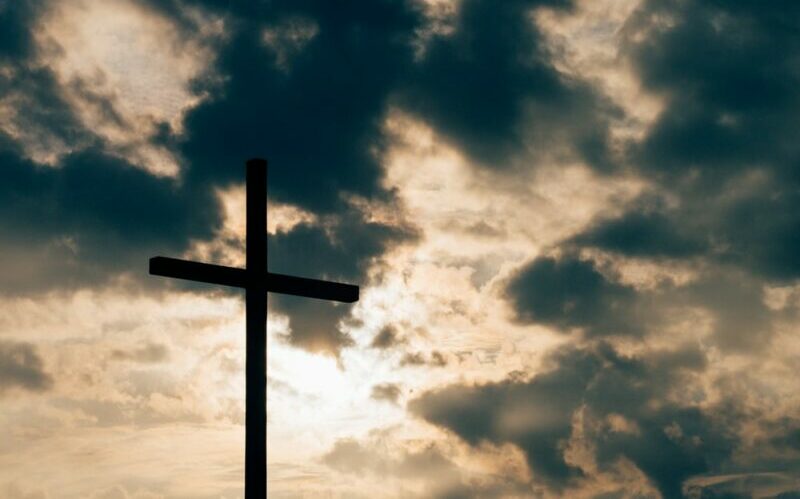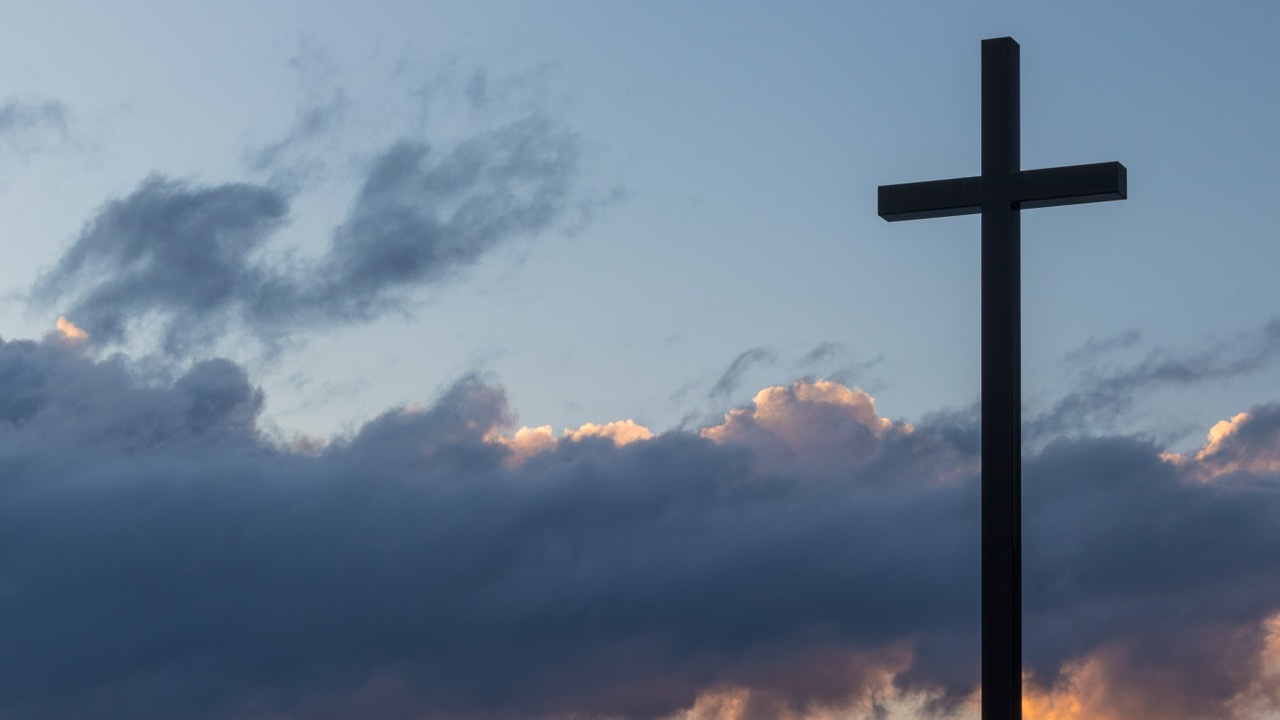It is estimated that from October 7, 2023 until May, 2024, close to 36,000 Palestinians and 1500 Israelis have lost their lives in the Hamas-Israel war. Thousands more Gazans have perished from malnutrition or disease or have disappeared under mountains of sand and rubble. (more…)
David Timbs
-

Pope fires warning shot to Church leaders who would defy Vatican II
The neo-traditionalists have been sent a clear message by Pope Francis that their dismissal of synodality, and their disruptive behaviour do violence to the very nature of the Church itself and thereby damage the Reign of God. (more…)
-

An unexpected Easter in Ukraine
On Easter night and for the entire season, Ukranians will greet one another with the faith affirmation: “Христос воскрес” (Khrystos voskres). воістину воскрес (vo-ee-stynu voskres)” and the Russians with their own: “Христос воскрес! (Kristos voskrjes!) Воистину воскрес! (Vaistinu voskrjes!)”. Christ is Risen, He is risen indeed. (more…)
-

Christmas, Jesus, and the promise of a new way of being human
The revolutionary vision of a free, equal and inclusive society that Jesus preached as an adult has survived in tact.
-
Catholicism must grow up
Catholic reform leader, Sr Joan Chittister OSB, has told a large Australian audience that Catholicism “must grow up” and that Catholics want a reformed Church. Sr Joan boosted the calls for change in the Australian Catholic church in an inspiring address to a 3,000-strong audience.
-
Christ is risen, He is risen indeed
During his final week of his life, Jesus world was savagely ripped away from him. And it all happened so quickly. He was arrested by the Roman troops in a security sweep of Jerusalem during the Passover celebrations. He was charged with sedition, convicted and sentenced to death as a criminal. He suffered an utterly humiliating death on a cross. It was an utter disaster for his family and followers.
-

Reflecting on the lead up to Jesus’ final week
During Holy Week Christians will experience in their liturgies an intense symbolic overload. In the space of eight days, the unfolding drama of Jesus’ final days, the confronting brutality he endured and his death by crucifixion give way to the great surprise of the faith, the Resurrection.
-
Catholic Bishops cannot govern their dioceses without pastoral councils
Only seven of the 28 Australian Catholic dioceses have pastoral councils. It seems that protecting the independence of ecclesiastical fiefdoms is more important than promoting the common good of the Church in this country.
-
The Polding House Push and The Catholic Weekly Bugle.
Over the past year in particular, Australian Catholics have become convinced that their bishops, with some exceptions, are playing games with them in the lead up to the national Plenary Council which is now scheduled to start in October 2021. Some believe, not unreasonably, that important stages in the process have been closely micro managed and that the outcomes of the Plenary may have been determined already.
-
Bishops and branch stacking: the second oldest profession
Branch stacking scandals are not new to Australian politics of whatever colour. Nor is the phenomenon new to the Catholic Church. In fact, the caper originated within Jesus’ inner circle and it hasn’t let up since.
-
DAVID TIMBS. Archbishop Comensoli needs to cut the ecclesiastical umbilical cord.
Peter A Comensoli has been the Catholic Archbishop of Melbourne for just on a year. So far he has demonstrated very little understanding of the disastrous situation he inherited. Nor has he shown any clear indication of the kind of vision and leadership needed to navigate a way though.
-
DAVID TIMBS. Australia’s bishops are presently visiting the Pope. . What are they telling him and will Aus tralia’s ordinary Catholics ever find out?
Australia’s bishops are currently in Rome for their regular ‘ad limina’ visit to the tombs of Saints Peter and Paul . Their last visit was in 2011. While there they will meet Pope Francis, have meetings with many of the Vatican dicasteries (government departments), be briefed on Vatican policy, and in turn will background the Vatican bureaucrats on how they see the state of the Church in Australia. But what will they be telling the Pope and the bureaucrats? Will it accord with what Australia’s lay Catholics have been saying and thinking?
-
DAVID TIMBS. The Pax Romana and the Gospel of Disturbance.
The first Roman Emperor, Augustus Caesar, is synonymous with a new age of optimism and hopefulness for the peoples of the Empire. This era of unprecedented peace, stability and prosperity came to be known as the Pax Romana. Jesus of Nazareth was born in to this world around 4 BCE. For his followers, Jesus’ birth also heralded in a new era in which humanity would be created anew, right relationship on every level would be restored and God’s moral claim upon the world would be fully realised. The coming of Christ for believers marked the Dawn of Redeeming Grace. (more…)
-
DAVID TIMBS. The priest shortage and the elephant in the room.
Twice in recent weeks, Fr James Clarke, Chair of the National Council of Priests (NCP), has stated that the majority of Australian priests and probably most laity support a comprehensive examination of all aspects of the Catholic priesthood and pastoral ministry in Australia including seminary formation of future priests. Clarke has also flagged that in their submission to the forthcoming National Plenary Council the NCP will also be calling for decisive action to be taken to address the issues related to the crisis facing the Australian Church as a direct result of the drastic decline of Australian-born priests in active parish ministry. The NCP is also calling into question the bishops’ policy on the run of importing foreign priests to make up for the shortfall. (more…)
-
DAVID TIMBS. The Catholic Church in Australia. Who has the Moral Authority?
For many of Australia’s Catholic bishops ‘business as usual’ meant denial that the culture, structures and processes of the Church were part of the problem. They had cut themselves off from the lived experience of ordinary Catholics and what they wanted their Church to be. If the planned Plenary (national) Council in 2020/2021 is to make any headway towards a ‘new business’ model, the bishops will need to undertake a very serious campaign of listening, post-haste. (more…)
-
David Timbs. The Synod of Bishops.
Catholic lay people face a very difficult task in attempting to influence the members of the 2015 Ordinary Synod of Bishops. Firstly, they will have a challenge in finding bishops to listen to them. Secondly, they will have a challenge in finding bishops ready to accept the risks associated with taking the Sensus Fidei Fidelium (or sense of faith of believers) seriously and then walking the road of Christ in solidarity with (syn-‘odos) their people.
From long and painful experience, many Catholics who have worked for significant reform in the Church have learnt that there have been only a few bishops in Australia who take the laity seriously, show themselves ready to engage in conversation and to listen to what is said and to make it their own. The situation may now be changing.Pope Francis has challenged the Bishops to snap out of their collective amnesia and to liberate themselves from the years of blind obedience, supine compliance and micro-management imposed on them from 1978 to 2012.
It will take a very long time for most Bishops to recover a healthy sense of equilibrium, independence, self-possession and confidence in addressing the critical issues which confront them. They will need to cast off the legacy passed on by the Irish-born bishops who ruled the Australian Church like Lords from the 19th Century.
A major portion of the inheritance they received is what John Ralston Saul calls the structures of contempt. Some of the most damaging expressions of this contempt are a cultivated deafness to the voice and counsel of the laity. This attitude appears to be hard-wired into the thinking of some bishops who repeatedly resist calls for representative pastoral and consultative bodies.
Catholics are beginning to believe that most bishops are also fearful of the laity and terrified beyond belief at the prospect of admitting fundamental mistakes in the way they have exercised their teaching role and pastoral care. Many bishops may even be terrified of a profound personal conversion to Christ and his Gospel!
This is not said lightly. It would be reasonable to assume that a sizeable proportion in the episcopate, including some Cardinals and officials in the Roman Curia, indicate that they are functionally agnostic by the way they present in word and actions.
From the papacy of Leo XIII, the Vatican Curia have been seduced by the pretence of thinking that the Church is coextensive with them and that their clerical status entitles them automatically to a world of prestige, power and influence.
It is useful to keep in mind what Francis has recently warned the Curia against in the way of careerism, sycophantism and the primitive Will to Power. These lead eventually to a clerical mentality that dehumanises and trivialises people they are sworn to serve. John Henry Cardinal Newman wrote extensively about the inherent dangers involved when Church leadership treats lightly or dismisses the laity and its role in the economy of ecclesial life.
A major challenge facing Church authorities right now is probably on the same scale as the 1968 crisis of trust and credibility. Paul VI’s Encyclical, Humanae Vitae, was rejected emphatically by the overwhelming majority of Catholic people, laity and clergy alike. Ever since, the Magisterium has either admitted inadequate teaching of the doctrine in the first place or the entire People of God has been in a state of invincible ignorance since 1968! This charade even surfaces in the pre-Synodal Lineamenta survey.
The brutal fact is that the faithful heard the message the first time and, in good conscience, rejected it. The Magisterium will have to deal with this and the 2015 Synod on the Family would be a very appropriate occasion
A far greater challenge for Church leadership is to acknowledge openly its appalling mishandling of the world wide clerical sexual abuse scandals. Perhaps the seeds of trust and credibility would be re-planted if the Pope and Synod Fathers collectively admitted that the culture of systemic cover-ups was and continues to be reflected in and protected by Canon Law. Integral to achieving a measure of restorative justice will be the acceptance of the fact that the crimes of clerical child rape were compounded by the fact that Church leaders allowed the dignity of innocent children to be sacrificed at the altar of clericalism.
The People of God rightly expect the same level of transparency and accountability from the Magisterium that they demand from secular governments, institutions and corporate bodies. A massive breakdown in people’s trust and confidence in pope and bishops simply intensifies a pre-existing atmosphere of cynicism, scepticism and outrage.
Catholic bishops have their work cut out developing their leadership skills if significant transformations in Church governance and pastoral vision are to occur. Catholics are not looking for mere cosmetic changes. They want doctrine to serve Christ and his Gospel of Compassion and not as either an end in itself or the punitive arm of Church Law.
Finally, if a healthy equilibrium is to be re-established in Catholic life, the forthcoming Synod needs to recommit the Church solemnly and unambiguously to the Magisterium of Vatican II. Pope Francis has signalled that he wants a return to ecclesial values and structures of collegiality and co-responsibility. These validate and support an ecclesiology which allows for mature, adult, fearless and open exercise of the Sensus Fidei Fidelium. However, first the bishops have to learn again the art of listening.
Pope Francis has said it better than anyone:
“The bishop must always foster this missionary communion in his diocesan Church, following the ideal of the first Christian communities, in which the believers were of one heart and one soul (cf. Acts 4:32). ……(he will) encourage and develop the means of participation proposed in the Code of Canon Law,[34] and other forms of pastoral dialogue, out of a desire to listen to everyone and not simply to those who would tell him what he would like to hear. Yet the principal aim of these participatory processes should not be ecclesiastical organization but rather the missionary aspiration of reaching everyone.” Evangelii Gaudium, 31.
David Timbs has a professional background in New Testament literature, Interpretation and Biblical History. Now retired from teaching, he writes extensively in the areas of Church, theology and Scripture. He is also an active member of Melbourne-based Catholics for Renewal Inc,
